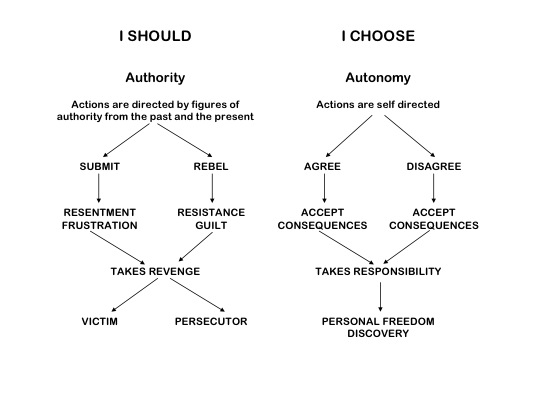Are most of us consciously exercising freedom of choice in our daily lives? Without wanting to get into the intricacies of predestination and election, there is a basic concept around the nature of humankind that we have freedom to choose our actions.
Modern psychological theories, including cognitive behavioural therapies, are founded on the idea that the control of our behaviour is exercised through our choices. This is not an absolute of course, and I have argued previously about the necessity of remembering that our cognitive selves are as fallen as our emotional selves, so we cannot rely on this alone as a way of ordering our lives.
However, most of us would be comfortable with the idea that as we listen to the preaching on a Sunday, we have something called willpower, which we exercise as we yield to God’s call on us to grow in Godliness. The more we seek to grow into the likeness of Jesus, we choose to be malleable to the teaching or not. We believe that we can exercise our freedom of choice in how we conduct our lives in the coming days.
Yet, how often do you find yourself answering to someone’s invitation to a casual cup of coffee with “well I’d love to, but I should really ……(write my sermon/do the ironing/spend some time with my parents/finish doing my tax etc). Or conversely, how often do you hear the little voice inside your head, as you reach out for the chocolate cake/fourth coffee for the day, say “you shouldn’t be doing that”. Most of us have an internalised voice, which is not to be confused with a healthy conscience, which constantly comments on many of our considered decisions and behaviours. We externalise that voice to justify our actions, basing our decision on an obligation that is in someway external to us, hence shifting some responsibility for the decision to say “no”. We neither appear, nor feel, to be making our own decisions and choices: we place the responsibility for the decision on the “little voice” inside our head that articulates shoulds/should nots, musts/must nots and have tos – “self talk”.
The degree to which this voice influences our lives can be examined by quietly reflecting on how often in a day we hear an internal message saying “I should….” or “I should not….” and listing them all. It’s often a long list!
The list is often populated by messages from authority figures in our past and present, which we have taken on board as an automatic overseer.
In order to be more aware of taking full responsibility for our decisions, we can review the record of “musts” and “shoulds”, and for each example, reflecting on whether we want to choose, or choose not to, complete the command.
The diagram below outlines the consequences of either operating out of the “I should” paradigm, or the “I choose” one:

This diagram shows that responding automatically to the internalised commands can lead to taking on a stance of victimhood or persecutor. On the other hand, making true choices is the path of taking responsibility for consequences and personal freedom. Which pathway are you on today?























